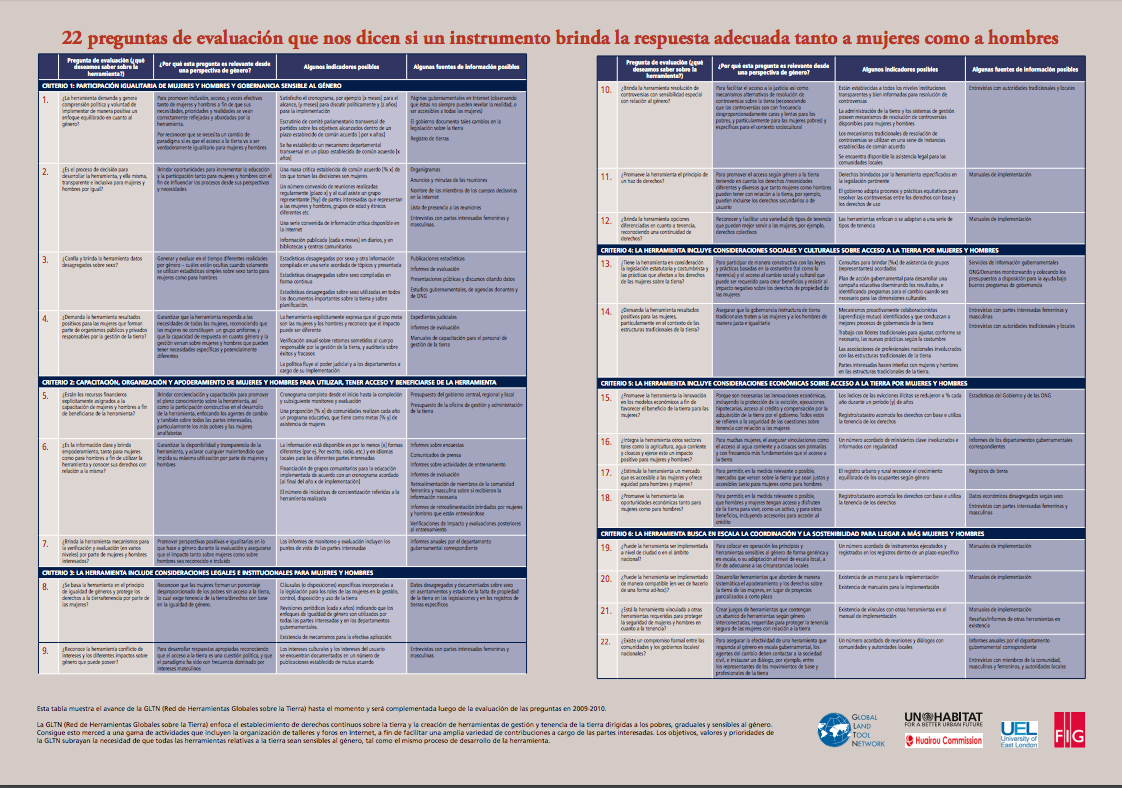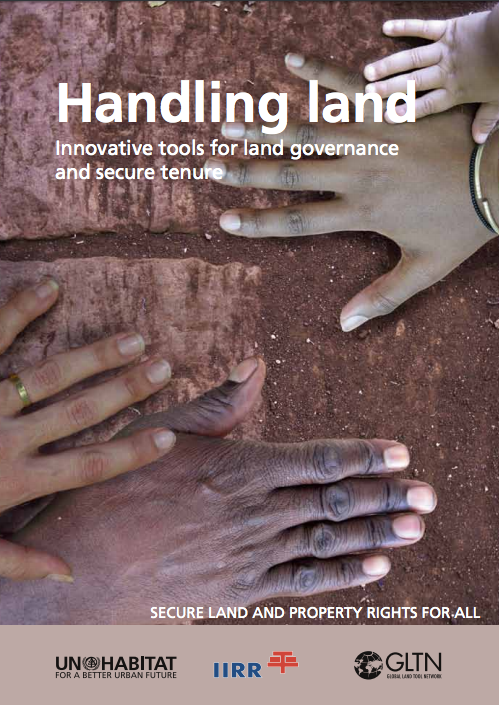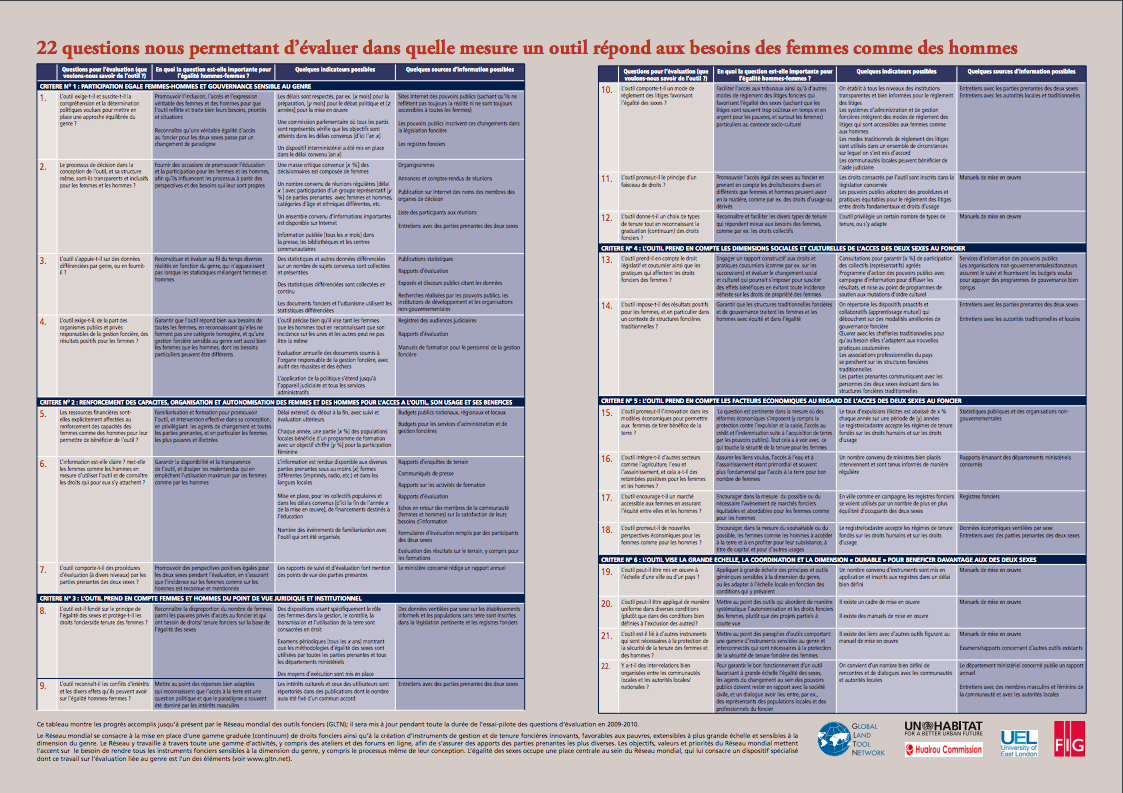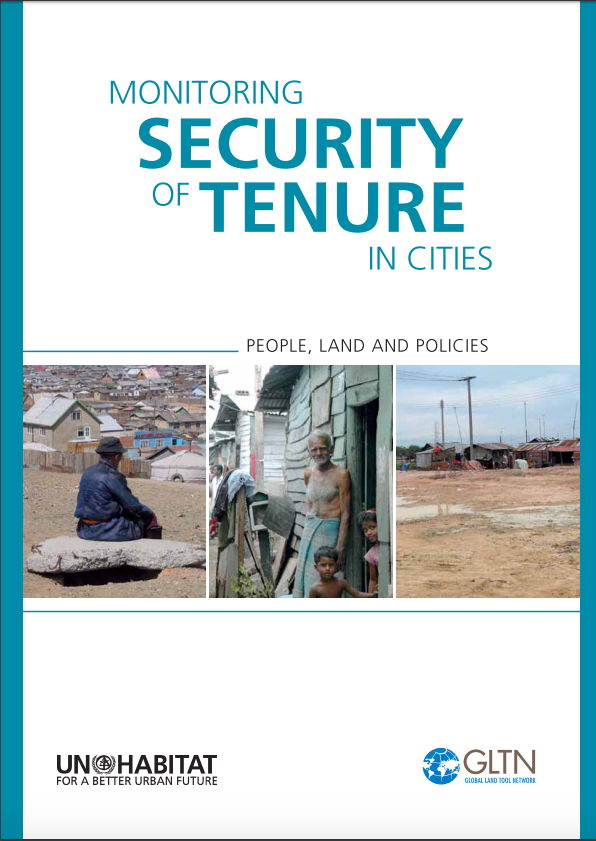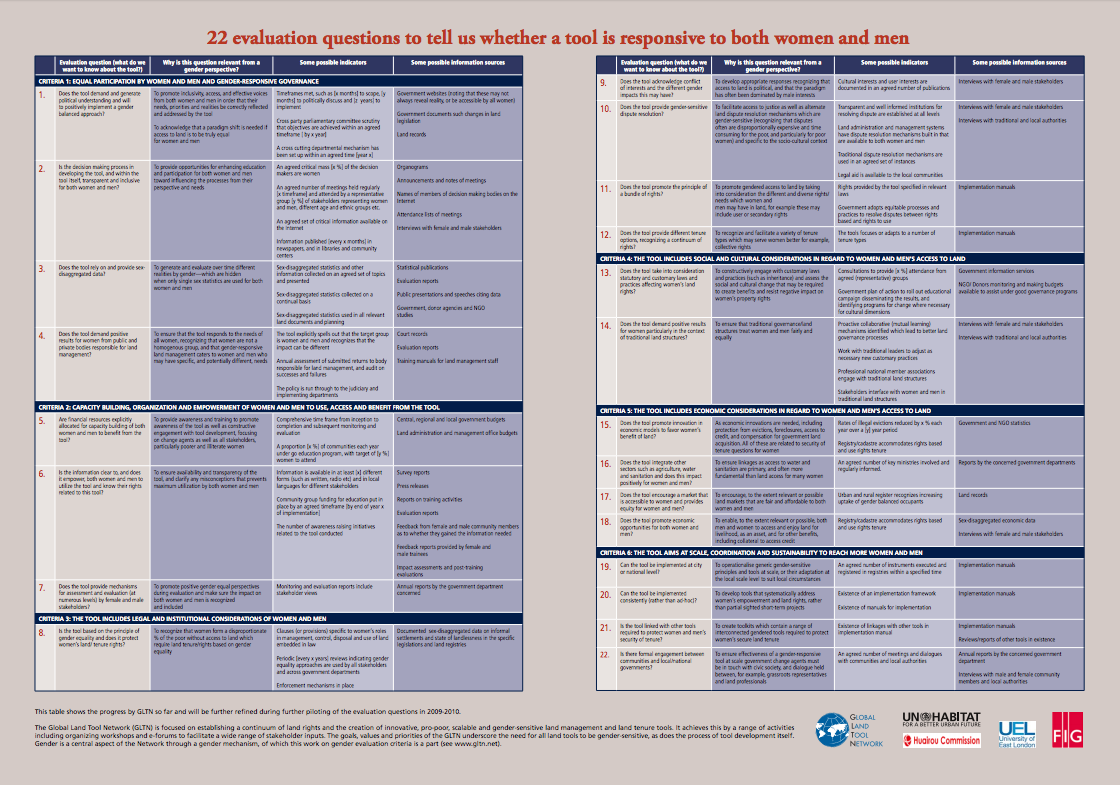Focal point
Location
The Global Land Tool Network (GLTN) is an alliance of global regional and national partners contributing to poverty alleviation through land reform, improved land management and security of tenure particularly through the development and dissemination of pro-poor and gender-sensitive land tools.
Secure land tenure and property rights are fundamental to shelter and livelihoods as well as the realisation of human rights, poverty reduction,economic prosperity and sustainable development.
The Global Land Tool Network (GLTN) main objective therefore is to contribute to poverty alleviation and the Millennium Development Goals through land reform, improved land management and security of tenure.
UN-Habitat through GLTN continues to work towards this with partners who include international civil society organizations, international finance institutions, international research and training institutions, donors and professional bodies.
Most developing countries use conventional land administration systems which cover less than 30 per cent of the country, leaving up to 70 per cent of citizens looking to informal and/ or customary approaches for their tenure security.
While there are many examples of good land policies, there are few policies that have been fully implemented due to lack of pro-poor, gendersensitive and largescale land tools. Further, conventional land titling approaches have largely failed to deliver their expected results since existing technical solutions are too expensive, inappropriate for the range of tenure found in developing countries, unsustainable financially or in terms of available capacity, and instead a range of land tenure options is more appropriate.
Core Values
Consequently, GLTN's core values and principles are founded in the development of land tools that are:
- Pro poor;
- Equitable;
- Sustainable;
- Affordable;
- Systematically large scale /scalable; and,
- Gender-sensitive, while taking into consideration:
- Good governance;
- Subsidiarity; and,
- The Continuum of Land Rights.
GLTN Objectives and Mandate
GLTN has developed a global partnership on land issues pulling together global partners, as well as many individual members. These partners include international networks of civil society, International Finance Institutions, international research and training institutions, donors and professional bodies. It continues to take a more holistic approach to land issues by working towards the following objectives:
- The establishment of a continuum of land rights, rather than just focus on individual land titling
- Improving and developing pro-poor land management, as well as land tenure tools
- Unblocking existing initiatives Assisting in strengthening existing land networks
- Supporting in the development of gendered land tools which are affordable and useful to grassroots
- Improving the general dissemination of knowledge about how to improve security of tenure
- Improving the general knowledge dissemination on the improvement of security of tenure
Resources
Displaying 236 - 240 of 286Criterios de evaluación de género para herramientas que versen sobre la tierra en gran escala Cómo podemos juzgar si una herramienta aplicable a la tierra es sensible a las necesidades tanto de hombres como de mujeres?
A pesar del avance en los derechos de las mujeres, los derechos a la tierra y a la seguridad de su tenencia no son disfrutados igualitariamente por mujeres y hombres en muchas partes del mundo. Esto vulnera los derechos humanos internacionales, ejerciendo asimismo un impacto negativo sobre los hogares y la economía. Los temas de género referidos a la tierra son complicados. Involucran territorios sociales y culturales sensibles y desafían estructuras de poder profundamente enraizadas.
Handling Land: Innovative tools for land governance and secure tenure
Everyone has a relationship to land. It is an asset that, with its associated resources, allows its owner access to loans, to build their houses and to set up small businesses in cities. In rural areas, land is essential for livelihoods, subsistence and food security. However, land is a scarce resource governed by a wide range of rights and responsibilities. And not everyone’s right to land is secure. Mounting pressure and competition mean that improving land governance - the rules, processes and organizations through which decisions are made about land - is more urgent than ever.
Les critères d’évaluation du genre pour les outils fonciers à grande échelle: Comment décider si un outil foncier correspond bien aux besoins des femmes comme à ceux des hommes?
Comment décider si un outil foncier correspond bien aux besoins des femmes comme à ceux des hommes? En dépit des avancées dans le domaine des droits des femmes, ceux qui concernent la terre et la sécurité du régime foncier ne sont pas également répartis entre les deux sexes dans bien des régions du monde. Cela va à l’encontre des droits humains reconnus par les conventions internationales, tout en ayant des effets néfastes sur les ménages et sur l’économie. Lorsqu’elles touchent à la terre, les questions d’égalité des sexes deviennent plus complexes.
Monitoring Security of Tenure in Cities: People,Land and Policies
This publication, Monitoring Security of Tenure in Cities: People, Land and Policies, presents an innovative method to ascertain the extent to which security of tenure can be measured at three main levels. Targeting cities in developing countries, the methodological framework presented in this publication is entrusted in the concept of continuum of land rights where tenure can be realised at various levels: individual, household, settlement or community, city and national levels. Various options to measure tenure security at each of these levels are presented.
Gender evaluation criteria for large-scale land tools: How can we judge if a land tool is responsive to both women and men’s needs?
This Gender Evaluation Criteria (GEC) matrix has been extracted from the GLTN publication entitled Designing and Evaluating Land Tools with a Gender Perspective: A Training Package for Land Professionals
Language: English, Spanish, French, Arabic





